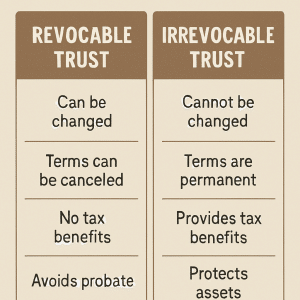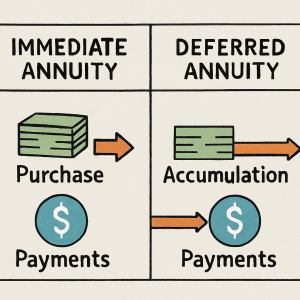As people reach retirement age, finding ways to stretch retirement funds as far as possible is essential for a comfortable retirement. Taxes are one of the largest expenses for most Americans, and retirees are no exception.
In this blog, we’ll explore the different states that don’t tax retirement income and what that means for retirees in those states. From the expected states such as Florida and Nevada to some lesser-known states, we’ll provide an overview of the financial benefits of retiring in one of these tax-friendly states.
Whether you’re already retired or just planning your future, this blog is a must-read for anyone seeking to maximize their income and minimize their tax burden in retirement.
These 12 States Don't Tax Retirement Income
The twelve states that don’t tax retirement income are:
| States That Don't Tax Retirement Income |
|---|
| Illinois |
| Iowa |
| Mississippi |
| Pennsylvania |
| Alaska |
| Florida |
| Nevada |
| South Dakota |
| Tennessee |
| Texas |
| Washington |
| Wyoming |
New Hampshire also doesn’t have a state income tax, however, it does tax interest and dividend payments, which are commonly used for the fixed income portion of a retirement portfolio.
SOURCE: National Conference of State Legislatures. (2021). State Taxation of Retirement Income.

States that Do Not Tax Social Security Benefits
These 37 states that don’t tax Social Security benefits:
- Alabama
- Alaska (no state income tax)
- Arizona
- Arkansas
- California
- Delaware
- Florida (no state income tax)
- Georgia
- Hawaii
- Idaho
- Illinois
- Indiana
- Iowa
- Kentucky
- Louisiana
- Maine
- Maryland
- Massachusetts
- Michigan
- Mississippi
- Nevada (no state income tax)
- New Hampshire (no state income tax, dividend, and interest taxes only)
- New Jersey
- New York
- North Carolina
- Ohio
- Oklahoma
- Oregon
- Pennsylvania
- South Carolina
- South Dakota (no state income tax)
- Tennessee (no state income tax, dividend, and interest taxes only)
- Texas (no state income tax)
- Virginia
- Washington (no state income tax)
- Wisconsin
- Wyoming (no state income tax)
- Washington D.C.
Note: Even if the state doesn’t tax your social security benefit, it is still subject to federal income tax.
States That Don't Tax Pensions

There are 14 states that don’t tax pensions.
- Alabama: Alabama doesn’t tax pension income from defined benefit retirement plans.
- Alaska: Because Alaska doesn’t have a state income tax, you won’t pay taxes on your pension or other income.
- Florida: Like Alaska, Florida doesn’t have an income tax, so your pension will not be taxed.
- Hawaii: Public and private pensions aren’t taxed in Hawaii, with one exception. Any portion that you contributed will be taxed.
- Illinois: Private pensions from qualified employee benefit plans are exempt from taxation in Illinois.
- Mississippi: Pensions used after the age of 59.5 are not taxed in Mississippi.
- Nevada: No income tax in Nevada means that your pension will not be taxed after retirement.
- New Hampshire: New Hampshire is another state with no income taxes, so there is no tax on pension income. There is, however, taxes on interest and dividends.
- Pennsylvania: The only time pensions are taxed in this state is when you retire early.
- South Dakota: There are no income taxes in the state of South Dakota.
- Tennessee: Taxes are only paid on interest and dividends in this state, not on pensions.
- Texas: No personal income tax means that Texans can hold onto their pension funds.
- Washington: Washington is another state without an income tax.
- Wyoming: Like many other states on this list, Wyoming does not have an income tax.
Marginal State Individual Tax Rates
The table below lists the individual state income tax burden, total income tax burden, and the states ranking 1-50 with New York Being the worst ranked 50th.
| State | Individual Income Tax Burden | Total Tax Burden | Rank* |
|---|---|---|---|
| Alaska | 0.00% | 5.06% | 50 |
| Tennessee | 0.06% | 5.75% | 49 |
| Delaware | 3.28% | 6.22% | 48 |
| Wyoming | 0.00% | 6.32% | 47 |
| New Hampshire | 0.14% | 6.41% | 46 |
| Florida | 0.00% | 6.64% | 45 |
| South Dakota | 0.00% | 7.12% | 44 |
| Montana | 2.66% | 7.39% | 43 |
| Alabama | 2.00% | 7.41% | 42 |
| Oklahoma | 1.90% | 7.47% | 41 |
| Idaho | 2.03% | 7.59% | 40 |
| South Carolina | 2.03% | 7.67% | 39 |
| Missouri | 2.36% | 7.80% | 38 |
| North Dakota | 0.95% | 8.00% | 37 |
| Georgia | 2.38% | 8.01% | 36 |
| North Carolina | 2.65% | 8.16% | 35 |
| Virginia | 2.92% | 8.18% | 34 |
| Nevada | 0.00% | 8.19% | 33 |
| Texas | 0.00% | 8.22% | 32 |
| Michigan | 2.19% | 8.25% | 31 |
| Washington | 0.00% | 8.37% | 30 |
| Arizona | 1.60% | 8.39% | 29 |
| Indiana | 2.17% | 8.42% | 28 |
| Colorado | 2.32% | 8.52% | 27 |
| Pennsylvania | 2.57% | 8.57% | 26 |
| Oregon | 4.39% | 8.65% | 25 |
| Louisiana | 1.74% | 8.75% | 24 |
| Arkansas | 2.24% | 8.77% | 22 |
| Kentucky | 3.16% | 8.77% | 22 |
| Massachusetts | 3.35% | 8.80% | 21 |
| Wisconsin | 2.83% | 8.92% | 20 |
| Ohio | 2.60% | 8.99% | 19 |
| Nebraska | 2.41% | 9.01% | 18 |
| West Virginia | 2.76% | 9.08% | 17 |
| Mississippi | 1.70% | 9.16% | 16 |
| Utah | 3.17% | 9.19% | 15 |
| Kansas | 2.43% | 9.34% | 14 |
| Iowa | 2.57% | 9.34% | 13 |
| New Mexico | 1.75% | 9.37% | 12 |
| Maryland | 4.07% | 9.47% | 11 |
| Illinois | 2.22% | 9.70% | 10 |
| California | 3.80% | 9.72% | 9 |
| Rhode Island | 2.31% | 9.91% | 8 |
| Connecticut | 3.07% | 10.06% | 7 |
| New Jersey | 2.54% | 10.11% | 6 |
| Minnesota | 3.74% | 10.20% | 5 |
| Vermont | 2.49% | 11.13% | 4 |
| Maine | 2.51% | 11.42% | 3 |
| Hawaii | 3.18% | 12.70% | 2 |
| New York | 4.90% | 12.75% | 1 |
Up Next in Social Security

What is the Social Security Disability 5 Year Rule?

What is my Social Security Full Retirement Age?















